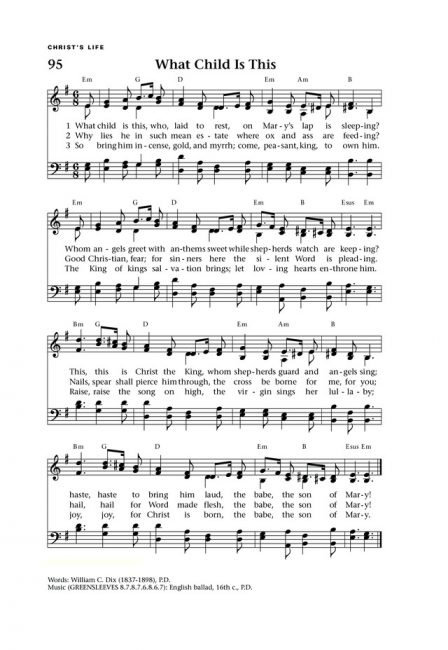
Christmas Hymns: “What Child is This?”
“What Child is This?” is included in the Russian and Latvian hymnbooks as well as the Ukrainian Children’s Songbook. The text was also included in an English MIA songbook in the 1960s and 70s. Well-known to many English speakers by both “What Child is This” and “Greensleeves,” this would be a wonderful addition to your […]
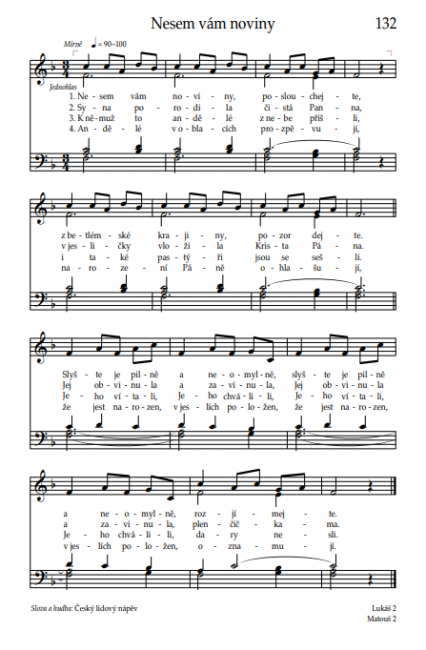
Christmas Hymns: “Come, All Ye Shepherds”
This Christmas carol is available in the LDS Czech-language hymnbook. It also used to be in the old English children’s song book Sing With Me under the title “Carol of the Shepherds.” The Japanese, Portuguese, Samoan, and Spanish children’s books have also had translations of this carol. I undertook an extensive search for choral arrangements […]
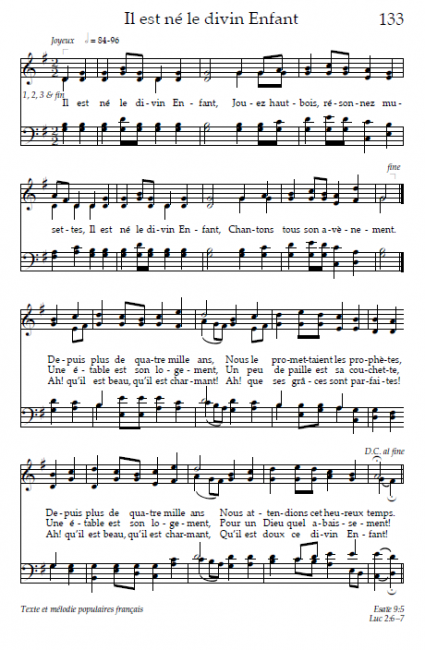
Christmas Hymns: “He Is Born, See the Child Divine”
Available only in the French hymnbook, “He Is Born, See the Child Divine” (sometimes referred to as simply “He Is Born”) is a lively, fun, and cheerful Christmas selection. There are numerous translations and harmonization available. The following is the version from the French LDS Hymnbook. Here is just one option for translation (it’s the […]
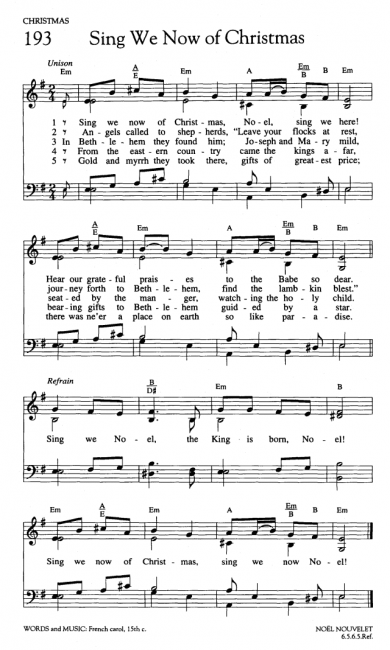
Christmas Hymns: “Sing We Now of Christmas”
Known in French as “Noël nouvelet” and in English by both “Sing We Now of Christmas” and “Sing We a New Noel,” this is available only in the French hymnbook. The English translation is fairly standard across other denominations’ hymnbooks in which it is included. I love the energy, the motion, and the minor tonality […]
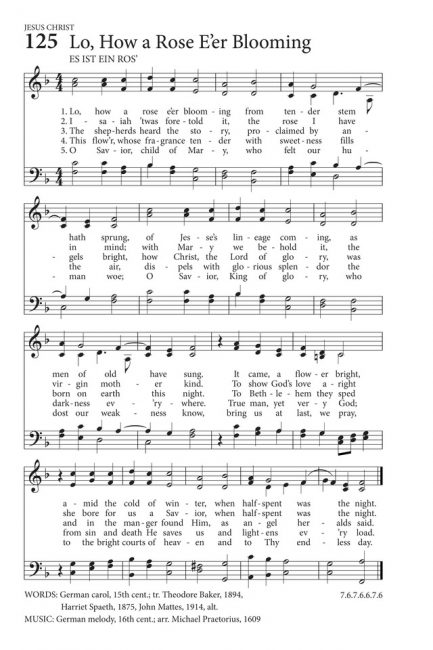
Christmas Hymns: “Lo, How a Rose E’er Blooming”
This is a beautiful Christmas hymn known as “Es ist ein Ros entsprungen” in its original German. It is included in the Dutch, French, German, Icelandic, and Swedish LDS hymnbooks. According to Wikipedia, “The rose in the text is a symbolic reference to the Virgin Mary, and the hymn makes reference to the Old Testament […]

Interview: Rob Gardner
How did your upbringing make you who you are today? I grew up in Mesa, Arizona. There are nine children in my family: five boys and four girls. I’m number six. My mom plays the piano and sings a little bit, and my dad sings, but I wouldn’t call us a musical family. I wasn’t […]
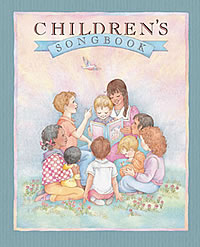
Criteria for Writing Children’s Songs
Are you interested in writing a children’s song for the Church’s recently announced new songbook for children? In this interview the prolific LDS children’s song writer Vanja Watkins said that a dissertation written by one of her former professors helped her immensely with her song writing process. Criteria for Selection of Children’s Songs in the Church […]
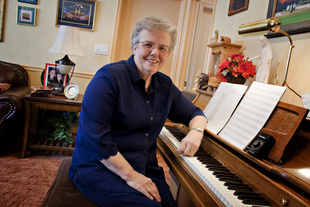
Interview: Janice Kapp Perry
What was the first song that you wrote? The first thing that I wrote was just for my son Steve to sing in church. He said, “I’ve been asked to sing in sacrament meeting and I don’t like anything.” The only pieces then by Church authors were kind of old-fashioned and he was fifteen. So […]
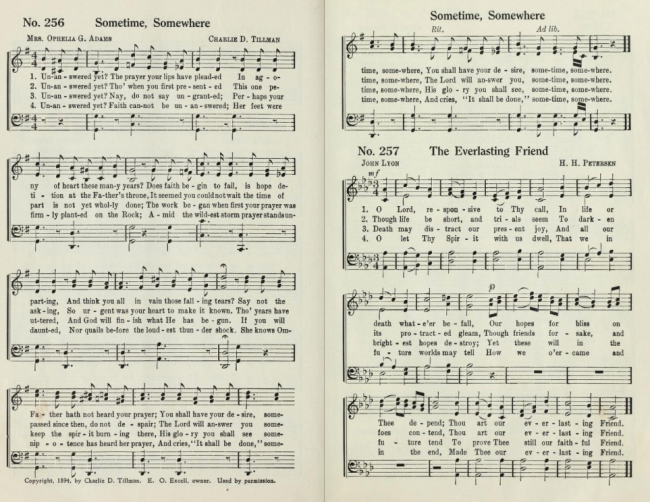
Hymns: “Unanswered Yet?”
This hymn will be familiar to Danish, French, Japanese, Portuguese, and Spanish-speaking saints. In English it has gone by a few names including “Unanswered Yet?,” “The Prayer,” and “Sometime, Somewhere.” The lyrics are very lovely, although not exactly typical of those in our current (1985) hymnbook. Here is an English version from Deseret Sunday School […]

Interview: Michael Moody on Creating the 1985 Hymnbook
Michael Moody was chairman of the 1985 Hymnbook Executive Committee. In this audio interview by The Mormon Channel for their program Conversations, he discusses his experience on the committee, as well as other events from his life. We’ve broken down the 90-minute interview to help you find the sections you are most interested in: Missionary […]
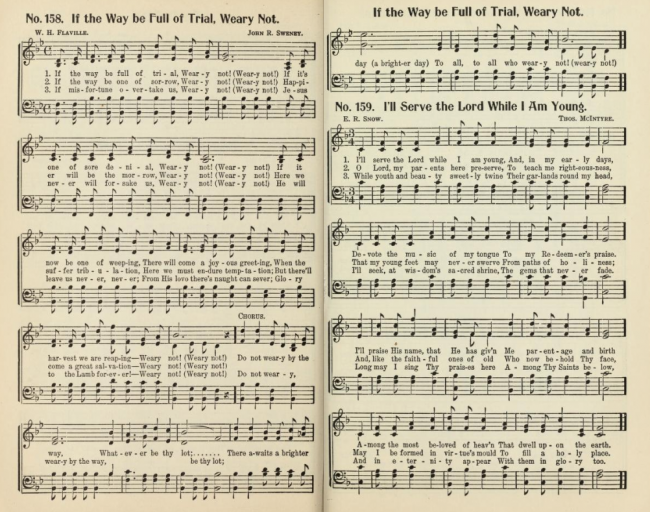
Hymns: “If the Way Be Full of Trial, Weary Not”
There are nearly 70 hymns that were originally written in English that have been translated into other languages and are included in official LDS hymnbooks. “If the Way Be Full of Trial, Weary Not” is one of these. Included in the current Portuguese, Samoan, Spanish, and Tongan hymnbooks, it is well-known to a significant percentage […]
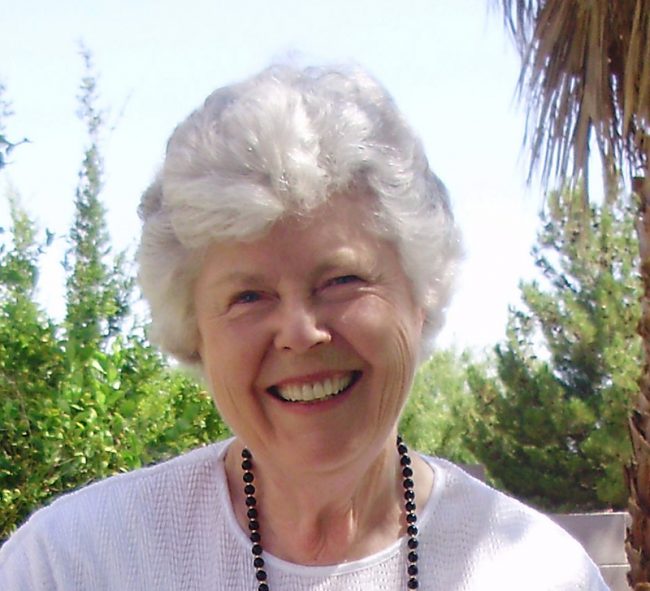
Interview: Vanja Y. Watkins
Vanja Yorgason Watkins is a B.A. and M.A. graduate of Brigham Young University. As a music educator she has taught in the Ogden City Schools, the Salt Lake City Schools, and in the BYU School of Music, and has presented music workshops throughout the state of Utah. Now, sort of retired, she teaches private piano. […]
7 Ways to Save Money on Sheet Music
Looking for ways to stretch your ward music budget? Did you just think, “What ward music budget?” You don’t have to resort to free arrangements every time (although we have recommendations for those, too). I discovered the following money-saving tactics while running my private music studio. They will also work for saving your ward money […]

Interview: Crawford Gates
Composer and conductor Crawford Gates wrote nearly 900 titles. His prolific musical career was rewarding in many aspects, but he most valued the opportunity to touch lives through art, love, and the Spirit. He passed away June 8, 2018, at the age of 96. What is an important element of teaching or learning music? I […]
A Word on Chromaticism
The presence of accidentals does not make a passage is chromatic. Chromatic passages occur specifically when you change the accidental of the same pitch. So for instance, in the key of C: E-F#-G#-A is a diatonic line, even though it has accidentals, because the accidentals still create a segment of a diatonic scale. You never hear, say, F and […]
Part Writing
Scholar David Huron explains that part writing (also called “voice leading”) “has been variously defined, but one simple definition is that it is the art of combining concurrent musical lines or melodies.” He continues, “The practice became codified into a set of recommendations (do’s and don’ts)” around the 1500s. These recommendations have evolved over the years along […]
Naming Pitches
Often when we talk about pitches, we make reference to where it falls in the singer’s voice (e.g., a soprano’s high E versus her low E) or in relation to the piano’s middle C. This system mostly works, but it can sometimes lead to some confusion. For instance, many sopranos can sing three Cs: the […]